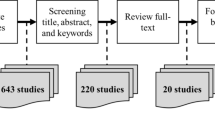Abstract
Key Performance Indicators (KPI) measure the performance of an organization relative to its objectives. To monitor organizational performance relative to KPIs, such KPIs need to be manually implemented in the form of data warehouse queries, to be used in dashboards or scorecards. Moreover, dashboards include little if any information about business strategy and offer a scattered view of KPIs and what do they mean relative to business concerns. In this paper, we propose an integrated view of strategic business models and conceptual data warehouse models. The main benefit of our proposal is that it links strategic business models to the data through which objectives can be monitored and assessed. In our proposal, KPIs are defined in Structured English and are implemented in a semi-automatic way, allowing for quick modifications. This enables real-time monitoring and what-if analysis, thereby helping analysts compare expectations with reported results.
Access this chapter
Tax calculation will be finalised at checkout
Purchases are for personal use only
Preview
Unable to display preview. Download preview PDF.
Similar content being viewed by others
References
Barone, D., Jiang, L., Amyot, D., Mylopoulos, J.: Composite Indicators for Business Intelligence. In: Jeusfeld, M., Delcambre, L., Ling, T.-W. (eds.) ER 2011. LNCS, vol. 6998, pp. 448–458. Springer, Heidelberg (2011)
Cabot, J., Pau, R., Raventós, R.: From uml/ocl to sbvr specifications: A challenging transformation. Information Systems 35(4), 417–440 (2010)
Eckerson, W.: Performance dashboards: measuring, monitoring, and managing your business. Wiley (2010)
Giorgini, P., Rizzi, S., Garzetti, M.: Goal-oriented requirement analysis for data warehouse design. In: DOLAP 2005, pp. 47–56 (2005)
Hill, T., Westbrook, R.: Swot analysis: it’s time for a product recall. Long Range Planning 30(1), 46–52 (1997)
Jiang, L., Barone, D., Amyot, D., Mylopoulos, J.: Strategic Models for Business Intelligence. In: Jeusfeld, M., Delcambre, L., Ling, T.-W. (eds.) ER 2011. LNCS, vol. 6998, pp. 429–439. Springer, Heidelberg (2011)
Kaplan, R., Norton, D.: The balanced scorecard–measures that drive performance. Harvard Business Review 70(1) (1992)
Kaplan, R., Norton, D.: Strategy maps: Converting intangible assets into tangible outcomes. Harvard Business Press (2004)
Luján-Mora, S., Trujillo, J., Song, I.: A UML profile for multidimensional modeling in data warehouses. Data & Knowledge Engineering 59(3), 725–769 (2006)
Marr, B., Schiuma, G., Neely, A.: Intellectual capital–defining key performance indicators for organizational knowledge assets. Business Process Management Journal 10(5), 551–569 (2004)
Maté, A., Trujillo, J.: A Trace Metamodel Proposal Based on the Model Driven Architecture Framework for the Traceability of User Requirements in Data Warehouses. In: Mouratidis, H., Rolland, C. (eds.) CAiSE 2011. LNCS, vol. 6741, pp. 123–137. Springer, Heidelberg (2011)
Object Management Group: A Proposal for an MDA Foundation Model (2005)
Object Management Group: SBVR specification (2008)
Pardillo, J., Mazón, J.N., Trujillo, J.: Extending OCL for OLAP querying on conceptual multidimensional models of data warehouses. Information Sciences 180(5), 584–601 (2010)
Silva Souza, V.E., Mazón, J.-N., Garrigós, I., Trujillo, J., Mylopoulos, J.: Monitoring strategic goals in data warehouses with awareness requirements. In: Proceedings of the 27th Annual ACM Symposium on Applied Computing, pp. 1075–1082. ACM (2012)
Yu, E.: Modeling strategic relationships for process reengineering. Social Modeling for Requirements Engineering (2011)
Author information
Authors and Affiliations
Editor information
Editors and Affiliations
Rights and permissions
Copyright information
© 2012 Springer-Verlag Berlin Heidelberg
About this paper
Cite this paper
Maté, A., Trujillo, J., Mylopoulos, J. (2012). Conceptualizing and Specifying Key Performance Indicators in Business Strategy Models. In: Atzeni, P., Cheung, D., Ram, S. (eds) Conceptual Modeling. ER 2012. Lecture Notes in Computer Science, vol 7532. Springer, Berlin, Heidelberg. https://doi.org/10.1007/978-3-642-34002-4_22
Download citation
DOI: https://doi.org/10.1007/978-3-642-34002-4_22
Publisher Name: Springer, Berlin, Heidelberg
Print ISBN: 978-3-642-34001-7
Online ISBN: 978-3-642-34002-4
eBook Packages: Computer ScienceComputer Science (R0)




